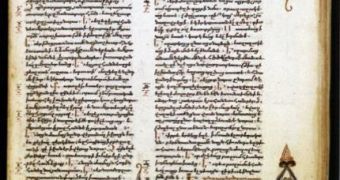Investigators at the Reading University now believe they've discovered the most ancient words in the English language, with the help of a sophisticated computer simulation. The program accounts for the rate of change that has been recorded throughout history for German and other related languages such as English. The scientists say that “I,” “we,” “two,” and “three” are some of the oldest words in the world, dating back tens of thousands of years ago.
Linguists have it that, in the past, similar vocal sounds were used throughout most of Europe and as far away as the Indian continent to depict any given concept. Over time, the way in which people expressed themselves in relation to some of these concepts and names of people, feelings, or things, changed significantly, eventually leading to the reshaping of the entire language.
But whenever the words depicting a concept were modified, they left behind a historic cue. RU investigators only had to collect as many of these cues as possible, and mix them together in a simulation.
Their results not only show the evolution of the English language, but also predict its future, in that they name words that have a high chance of soon going “extinct” from the common vocabulary, such as “squeeze,” “guts,” “stick,” or “bad.” Chances are that these terms will be replaced by some of their synonyms, and that they will exit common use in a few decades or centuries. The computer software has not been exactly accurate when predicting the future, seeing how in the past changes took centuries to come to pass.
“We have lists of words that linguists have produced for us that tell us if two words in related languages actually derive from a common ancestral word. We have descriptions of the ways we think words change and their ability to change into other words, and those descriptions can be turned into a mathematical language,” UR evolutionary biologist Mark Pagel explains.
In the computer simulation you can “type in a date in the past or in the future and it will give you a list of words that would have changed going back in time or will change going into the future. From that list, you can derive a phrasebook of words you could use if you tried to show up and talk to, for example, William the Conqueror. The words he would've used would've derived from a different common ancestral word to the English words that we're using today,” he tells the BBC in an interview.

 14 DAY TRIAL //
14 DAY TRIAL //